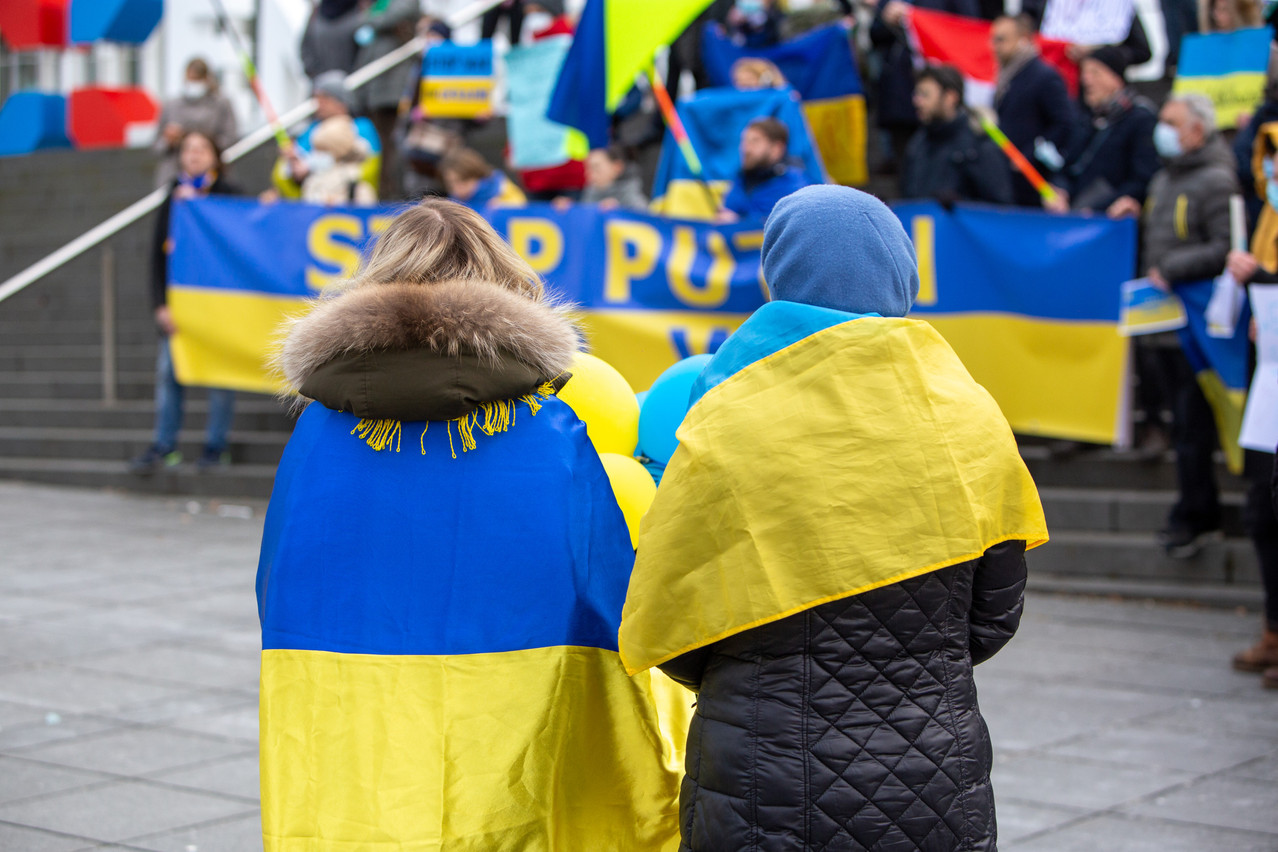The EU after Russia attacked Ukraine activated a temporary protection mechanism that allows Ukrainian nationals and long-term residents to gain permission to stay and find work. But the scheme excludes many third-country nationals, arguing that they can return to their country of origin.
“There is a small minority of third-country nationals where we have come to an impasse,” said Françoise Nsan-Nwet, a lawyer who supports asylum seekers and refugees as part of a legal assistance service offered by the Luxembourg Bar Association.
Nsan-Nwet herself has been working with around 50 people who have had their application for protection refused over the past weeks. “For the most part, they are people who studied in Ukraine, but not only. I also worked with individuals who worked in Ukraine and had permanent residency.”
The duration of residence is one criterion for third-country nationals to be given temporary protection, but also whether applicants will be able to return to their country of origin in safe and durable conditions.
“Law can seem very cold”
“There are elements that are open to interpretation,” said Nsan-Nwet. Cases that move to court could provide more guidance on what is considered safe and durable. The lawyer hopes that with time, a more human reading of the law will be applied.
“There’s a political and a legal reality,” said Nsan-Nwet. “The law can seem very cold.” That many third-country refugees suffered discrimination and additional hardship on their journey to the EU doesn’t help.
You must look at it on a case-by-case basis.
Tina, a refugee student of Nigerian origin, that she faced long delays at the Polish border, confirming reports that third-country nationals were made to wait while Ukrainians could pass. People were stuck for four days or more, in poor health, exhausted and undernourished, she said. “It wasn’t a good experience.”
Being refused temporary protection--despite coming from the same warzone and having suffered the trauma of escape--makes many feel that the discrimination continues. It can be hard to explain the law faced with the distress suffered, said Nsan-Nwet.
30 days to leave the country
“On a human level, we must make an extra effort,” she said. “You must look at it on a case-by-case basis.” For example, she has worked with students who were still minors when they fled, third-country nationals married to a Ukrainian who remained in the country, or families in which the children hold Ukrainian citizenship but not the parents.
People who are refused temporary protection are at the same time given 30 days to leave the country with the state covering the expense of the journey. And even though the immigration office’s decision is open to appeal, once refused, the applicants can nonetheless be forced to leave the country and pursue their appeal from abroad.
“A big majority have left Luxembourg,” Nsan-Nwet said of those 2% of refugees who had their application thrown out. “They don’t know what to do,” she said. Applicants can seek international protection--a different asylum process--but during this time cannot seek work, unlike when granted temporary protection. Luxembourg should try to find other ways of allowing people to stay even if under a different mechanism that would, for example, enable them to wait to resume their studies elsewhere, said Nsan-Nwet.
Out of 4,338 people who applied for temporary protection as of the , the latest data available, 238 did not hold Ukrainian nationality. They included people from Nigeria, Algeria, Cameroon, Morocco, Russia, Iraq, Georgia, Egypt, Ivory Coast and other countries.
The number of refusals at 87 pales in comparison to 4,175 applications that were granted. “The immigration office applies the law,” Nsan-Nwet said, not wishing to fault them for the job they do. “But these are human tragedies.”
